
In over a century of searching, riches are still found in the “Treasure State” of Montana. Originally earning this moniker for the gold, silver and copper finds, sapphires have solidly earned their place among the bounty of the State. And while treasure hunters might look different than they did over 150 years ago, there’s still that spark that inspires people to search for their own gems.
GOLD RUSH SAPPHIRES
During the Montana gold rush in South-western Montana in the early 1860s, sapphires showed up as colorful distractions in the miners’ pans and sluice boxes. The colorful bits of sand and gravel were of little value. If the miners knew what they had at the time, they wouldn’t have been as quick to toss them aside.
“They were after the gold,” explained Cass Thompson, owner and operator of the Spokane Bar Sapphire Mine roughly 30 miles northeast of Helena whose family has mined this area for sapphires over the past 60 years.
SAPPHIRE FORMATION
Created as igneous rocks slowly cooled, sapphires are made of the mineral corundum, chemically known as aluminum oxide. At a 9 on the Mohs scale, sapphires are the hardest natural substances following the diamond.
Reaching the level of the sapphire-laden material can be a challenge. Bound in a conglomerate of feldspar and bentonite clay, sapphires tend to settle well below layers of topsoil, overburden and evidence of volcanic activity in the gravel bars. In some parts of the Eldorado Bar along the upper Missouri River deposit, there are layers 100 feet below the surface that make it more difficult to reach. But because of the sapphires’ high specific gravity of four (although much less than gold’s 19.3) these areas were often intermingled with placer deposits, which is why they were intertwined with the search for gold.
YOGO QUALITY & COLORS
This story is from the Rockhound Roadtrip 2024 edition of Rock&Gem Magazine.
Start your 7-day Magzter GOLD free trial to access thousands of curated premium stories, and 9,000+ magazines and newspapers.
Already a subscriber ? Sign In
This story is from the Rockhound Roadtrip 2024 edition of Rock&Gem Magazine.
Start your 7-day Magzter GOLD free trial to access thousands of curated premium stories, and 9,000+ magazines and newspapers.
Already a subscriber? Sign In
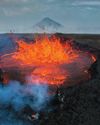
THE BRIGHT SIDE OF VOLCANIC ROCK
As a mineral resource, volcanic rock is decidedly short on glamour.
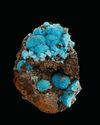
The Other Copper Minerals
12 Lesser-known Collectible Species

MINERAL COLLECTING -AND ROCK & GEM
Evolving Together FOR 54 YEARS
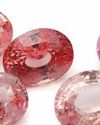
Gemstone Trends
A Look Back at 2024 & What to Expect in 2025
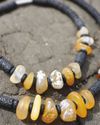
How to Make a GEM BEAD NECKLACE
No Lapidary Experience Needed!
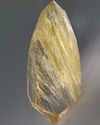
Framing Nature's Art
Faceting Rutilated Quartz for Beginners
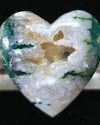
BEDAZZLED BLUE SEAM AGATE
More than several centuries ago, mining was the profession most often seen as befitting of men.
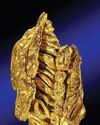
ROCK & GEM FIELD GUIDE:
Spinel is a captivating gemstone with a rich history of being mistaken for gems like ruby and sapphire.
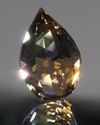
SNAKE SCALE DROP 1.5:1
This Faceting Focus is revisiting the briolette gemstone design because of its popularity with independent and hobby gemstone faceters.

STONE CHIC
How Earth-Inspired Decor Brings Comfort to our Home